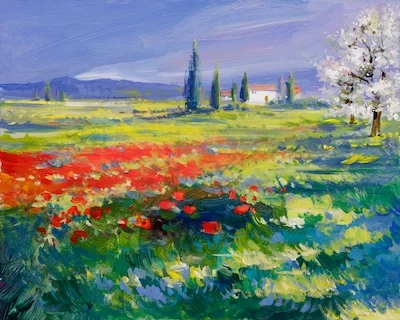Lynne Cohen
The uncanny lure of spartan photographs highlighted in Paris show.

Lynne Cohen, “Classroom,” 1933
gelatin silver print, 47" x 59" (© Andrew Lugg and Lynne Cohen Estate; photo © Centre Pompidou, MNAM-CCI/Philippe Migeat/Dist. RMN-GP)
Double doors, tarry black and imposing, stand open at the entry to an exhibition by the late Montreal-based photographer Lynne Cohen at the Centre Pompidou in Paris. They are not actual doors, but can be seen in her image, Untitled (Black Doors, Malevich), which embodies all that was her practice.
American-born Cohen understood her photographs much as Ukrainian Suprematist painter Kazimir Malevich understood his paintings: as objects. She sought out staged spaces – showrooms, interrogation rooms and training rooms – making only minimal adjustments to furnishings to create finely tuned compositions. Using large-format cameras, she captured precise detail with stark objectivity.

Lynne Cohen, “Blackboard,” 1980
gelatin silver print, 31" x 39" (gift of Andrew Lugg, 2018 Andrew Lugg and Lynne Cohen Estate; photo © Centre Pompidou, MNAM-CCI/ Philippe Migeat/Dist. RMN-GP)
Cohen, who rose to international acclaim before her death at age 69 in 2014, taught at the University of Ottawa from 1974 to 2005, before moving to Montreal. She received a 2005 Governor General’s Award in Visual and Media Arts, as well as the inaugural Scotiabank Photography Award in 2011.
The Paris show, prompted by a major donation of works by Cohen’s husband, Andrew Lugg, is arranged thematically. Her photos of observation rooms contain the most heightened tension. These spaces are occupied in very specific ways and are always transactional. Unlike houses, which create a barrier between us and the vulnerability of being in the world, they are neither protective nor comforting. Faced with the ambiguity of one-way windows and psychiatrist’s couches, viewers face a choice between positions of authority and subordination.

Lynne Cohen, “Model living room,” 1974
gelatin silver print, 8" x 9.5" (Andrew Lugg and Lynne Cohen Estate, photo © Gallery Stephen Daiter, Chicago)
In Cohen’s staged showrooms, such as Model living room, human-shaped plastic silhouettes intended to mimic the behaviour of potential residents are both impersonal and humorous. These silhouettes, and the crash-test dummies in later photographs of laboratories, are among the few references to the human form. They are not intended to stand in for living beings – her work is not about the absent body. Cohen is consistent in her use of multiple observational approaches. Her repeated use of clinical sites prompts us to question the difference between simulation and reality, a distinction she blurs.

Lynne Cohen, “Flying School,” after 1975
gelatin silver print, 46" x 50" x 1" (donation Caisse des dépôts et consignations, 2006; Andrew Lugg and Lynne Cohen Estate; photo © Centre Pompidou, MNAM-CCI/Jean-Claude Planchet/Dist. RMN-GP)
Photographs of empty training sites, such as beauty schools or flight simulators, tell us more about the space than the people who intermittently occupy it. Viewers are invited to question the difference between a gesture practiced during training and the same gesture enacted in a real situation, whether cutting hair or piloting a plane.
This carefully crafted exhibition, with all details well thought out, is partnered with adjacent work by French photographer Marina Gadonneix. The transition between the two exhibitions is subtle. Gadonneix, born in 1977, also uses laboratories and training rooms as subject matter, making visible inaccessible or hidden sites, such as the green room of a film studio or a firefighter’s blackened training house. She has studied Cohen’s work closely.

Marina Gadonneix, “Rock and sand,” 2012
chromogenic proof, 50" x 59" (gift of the Friends Centre Pompidou, 2019; © Marina Gadonneix / Galerie Christophe Gaillard; photo © Centre Pompidou, MNAM- CCI/Philippe Migeat/Dist. RMN-GP)
While the two artists met just once before Cohen’s death from cancer, it is satisfying to see Gadonneix challenge her own practice based on the depths of meaning and sensitivity reached by Cohen, who began her career sculpting with metal and then printmaking, before finding her voice with photography.
Early in her career, Cohen was influenced by American photographer Walker Evans, known for his objective documentary style. But her intentionally neutral voice evolved, and she began incorporating sociological concerns, while conflating documentary approaches with minimalism and conceptual art. Her composed symmetry and spartan formalism make her work uncannily seductive. ■
Lynne Cohen / Marina Gadonneix: Laboratoires / Observatoires at the Centre Pompidou in Paris from April 12 to Aug. 28, 2023.
PS: Worried you missed something? See previous Galleries West stories here or sign up for our free biweekly newsletter.
